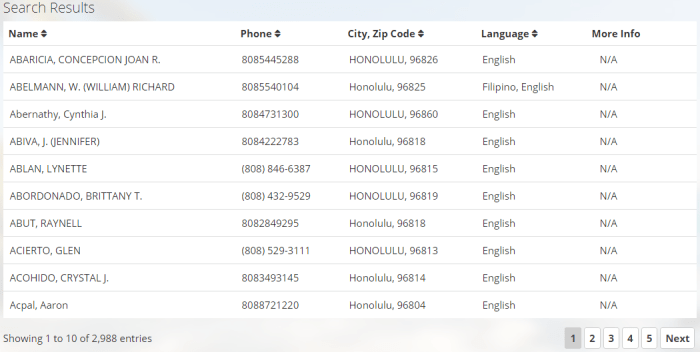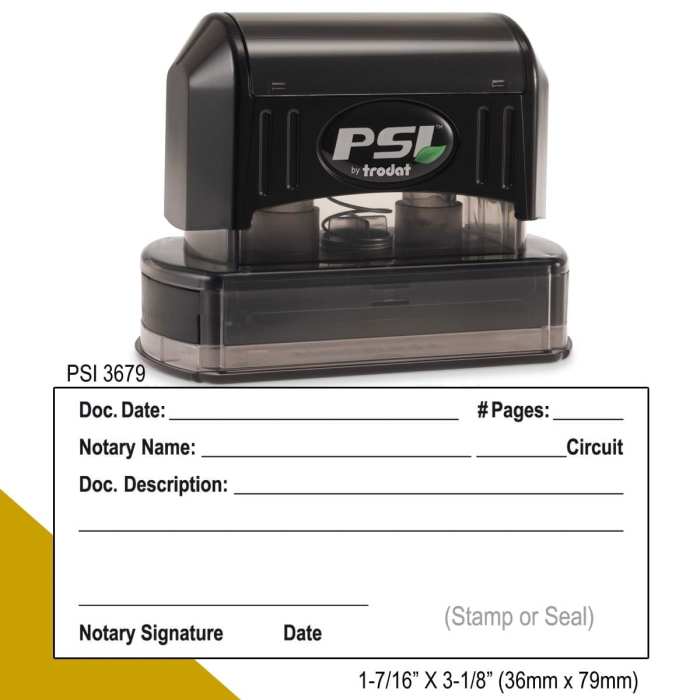Embark on a comprehensive exploration of the State of Hawaii Notary Public Manual, an authoritative resource that unveils the intricacies of the notary profession within the Aloha State. This guide provides a comprehensive overview of the commissioning process, duties, responsibilities, ethics, and resources essential for notaries public to fulfill their role with integrity and professionalism.
Hawaii Notary Public Commissioning Process
In the state of Hawaii, notaries public are appointed by the Lieutenant Governor and serve for a term of five years. To be eligible for a notary commission in Hawaii, an individual must be:
- At least 18 years of age
- A legal resident of Hawaii
- Not convicted of a felony or other crime involving moral turpitude
- Able to read and write in English
To apply for a notary commission in Hawaii, you must submit the following:
- A completed notary public application form
- A $50 application fee
- Proof of identity, such as a driver’s license or passport
- Proof of residency, such as a utility bill or lease agreement
Once your application is approved, you will be required to take a notary public education course and pass a notary public examination. The education course covers topics such as the duties and responsibilities of a notary public, the laws governing notarizations, and the proper procedures for performing notarizations.
The examination tests your knowledge of the material covered in the education course.
After you have passed the examination, you will be issued a notary public commission. Your commission will be valid for five years from the date of issuance.
Fees Associated with the Commissioning Process
The following fees are associated with the notary public commissioning process in Hawaii:
- $50 application fee
- $25 notary public education course fee
- $25 notary public examination fee
Hawaii Notary Public Duties and Responsibilities

Notaries public in Hawaii hold significant legal authority and responsibilities. They are commissioned by the state to serve as impartial witnesses to the signing of important documents, ensuring their authenticity and preventing fraud.
Hawaii notaries public are authorized to perform various notarial acts, including:
- Notarizing signatures on legal documents, such as contracts, deeds, and wills
- Administering oaths and affirmations
- Taking acknowledgments, where a person personally appears before the notary and acknowledges that they signed the document willingly
- Verifying the identity of individuals through identification documents
- Protesting negotiable instruments, such as checks and promissory notes
Maintaining a Notary Journal
Hawaii notaries public are required to maintain a notary journal, which serves as a record of all notarial acts performed. The journal must include specific information for each act, such as the date, time, type of act, names of the parties involved, and the notary’s signature.
The notary journal is an essential tool for maintaining accountability and preventing notary fraud.
Hawaii Notary Public Education and Training

Notaries public in Hawaii must complete an approved education course before being commissioned. The course must cover the following topics:* Notary public laws and regulations
- Duties and responsibilities of notaries public
- Proper notarization procedures
- Fraud prevention
- Ethics
The following providers offer approved notary public education courses in Hawaii:* National Notary Association
- American Society of Notaries
- Notary Public Underwriters
Continuing education is not required for notaries public in Hawaii, but it is recommended to stay up-to-date on changes in the law and best practices.
Hawaii Notary Public Ethics and Professional Conduct: State Of Hawaii Notary Public Manual

Notaries public in Hawaii are expected to adhere to a strict code of ethics and professional conduct. These guidelines ensure that notaries perform their duties with integrity, impartiality, and competence.
The Hawaii Notary Public Handbook Artikels the ethical and professional standards that notaries must follow. These include:
- Acting impartially and without bias
- Maintaining confidentiality of notarized documents
- Notarizing only documents that the notary has personally witnessed the signing of
- Refusing to notarize documents that are incomplete, altered, or contain false information
- Maintaining accurate records of all notarizations performed
Consequences of Violating Notary Public Ethics and Professional Conduct Rules, State of hawaii notary public manual
Violating notary public ethics and professional conduct rules can have serious consequences. Notaries who violate these rules may be subject to:
- Disciplinary action by the Hawaii Secretary of State
- Loss of notary public commission
- Civil liability for damages caused by their negligence or misconduct
- Criminal prosecution in severe cases
Ethical Dilemmas Faced by Hawaii Notaries Public
Hawaii notaries public may face a variety of ethical dilemmas in their practice. Some common ethical dilemmas include:
- Notarizing a document for a friend or family member
- Notarizing a document that contains information that the notary knows to be false
- Notarizing a document for someone who is intoxicated or under the influence of drugs
- Refusing to notarize a document for someone based on their race, religion, or sexual orientation
Notaries public who face ethical dilemmas should seek guidance from the Hawaii Secretary of State or from an experienced notary public.
Expert Answers
What are the eligibility requirements to become a notary public in Hawaii?
To be eligible, individuals must be at least 18 years old, a legal resident of Hawaii, and have not been convicted of a felony or certain misdemeanors.
How do I apply for a notary commission in Hawaii?
Applications can be submitted online through the Hawaii Secretary of State’s website. Applicants must provide personal information, undergo a background check, and pass a notary public examination.
What are the fees associated with the commissioning process?
The application fee is $30, and the commission fee is $50. Additional fees may apply for background checks and notary supplies.